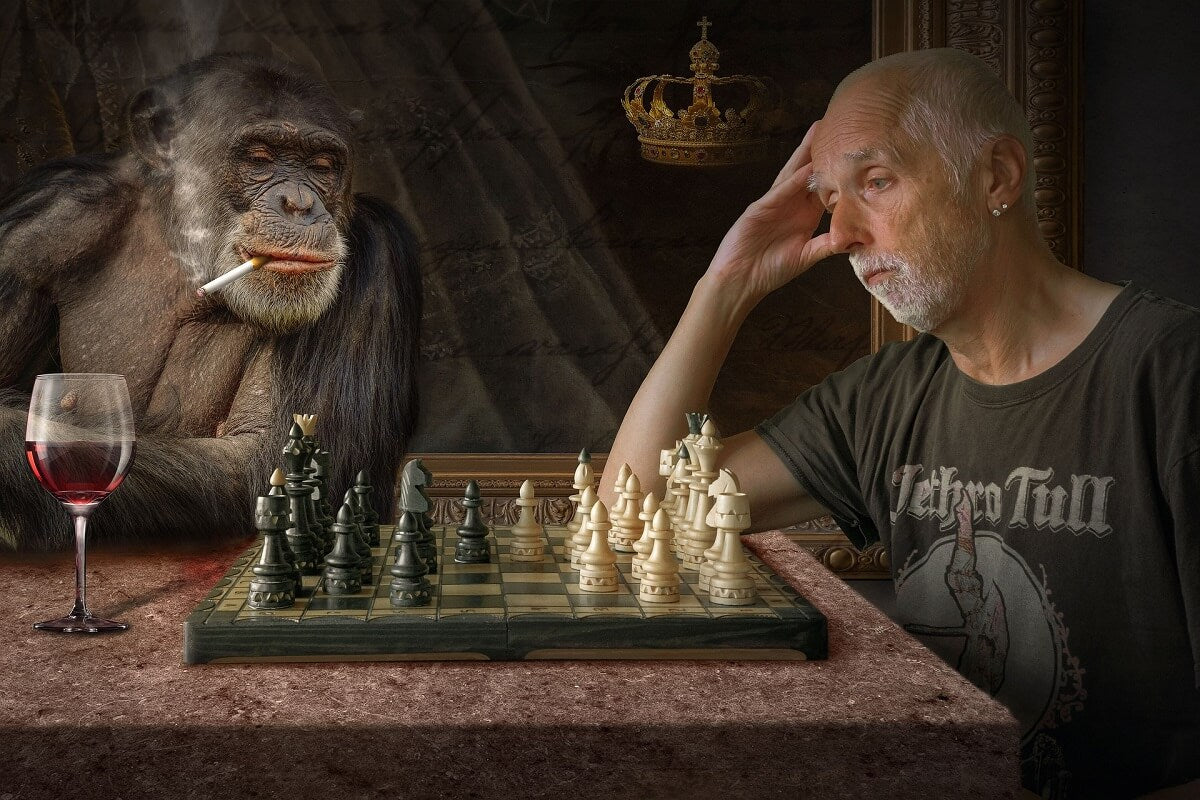
This has probably happened to you before: you are sitting with a friend across the table, both deeply absorbed in the intricacies of a board game - namely a game of chess - and it seems to go on forever. While getting lost in the beauty of the game and making it last for hours on end is a pleasure for many chess aficionados, this is, of course, untenable in the context of competitive chess.
In order to address this problem, and make sure that no player overly delays a game, chess clocks were invented.
Nowadays, you will find that chess clocks stand beside chess boards in nearly all situations - playing under the permanent threat of time running out is said to add even more excitement to a game of chess, and knowing how to manage time pressure is now a factor that helps determine your strength as a player.
The first chess clocks that were invented were called analog clocks, and they are still used from time to time in chess tournaments. However, they have practically been replaced by digital clocks in all situations, since they happen to offer more accuracy and a greater array of options. For instance, it is impossible to add an increment per move when using an analog chess clock, which is a major drawback in the current context of chess tournaments.
Today, we are going to focus on time controls: the mechanisms that are used in chess tournaments to ensure that matches can finish in a timely way, so that the tournament can proceed in a reasonable time frame.
We can divide time controls in roughly four sections, from the fastest to the slowest: bullet chess, blitz chess, rapid chess and classical chess. All of these time controls have their own distinctive features, and we are now going to analyze each of them individually.
Bullet chess
As the name indicates, this time control refers to chess games that are as fast as bullets - namely games that have less than three minutes for each player.
This time control is not very common in tournament chess, as it is considered that less than three minutes is not enough to produce high-quality games. It is more common in online chess, for a variety of reasons:
- There are no practical problems, such as a player accidentally knocking over his pieces or his opponent’s;
- It is possible to play with pre-moves in most online chess websites (a move that is made before the opponent replies, and which will automatically be played on the board with no time deduction if it is still legal after the opponent’s move);
- Usually, when playing online, people want to optimize the time they spend by playing as many games as possible. Obviously, faster time controls = a higher number of games in a given amount of time.
Blitz chess
In blitz games, each of the players has less than 10 minutes to complete the game. This may be in a sudden death format, which means that there is a limited amount of time for each player and that the game ends after the time runs out.
However, the emergence of digital clocks has also made it possible to add a small increment of time for each move played by each player.
The blitz time control that is used in official FIDE (World Chess Federation) events, and the most common globally, is three minutes for the whole game, plus two seconds of increment for each move.
Rapid chess
The rapid time control is very broad: it refers to games that have between 10 and 60 minutes. Just like blitz games, there may or may not be an increment per move in rapid chess - nowadays, it is rather uncommon to find a tournament that has sudden death time controls, as they are said to negatively impact the quality of the games.
The most common rapid time controls you will find are between 15 and 25 minutes per game with an increment of 3 to 10 seconds per move, as that is the most reasonable midpoint between blitz and classical chess.
FIDE’s official rapid time control is of fifteen minutes for the entire game, plus an increment of ten seconds for each move.
Classical chess
The most common time control in tournament chess is the classical one, and also the one that is regarded as the most “respectable” variation of chess.
In classical chess, players have a lot more time to think their moves through, in comparison with the faster controls we have just mentioned. This leads to deeper analysis and, most likely, a shorter amount of mistakes.
While there are many variations of classical chess, the most widely used one is 90 minutes for the entire game, with a 30-second increment for each move played.
This is the time control that you will find in most classical tournaments out there. However, if you happen to play in an official FIDE event, this will also be the time control used - with a seemingly small, but very important change: after move 40, players get an extra 30 minutes for the rest of the game.
In the Candidates Tournament and the World Chess Championship match, perhaps the most relevant FIDE events, the classical time control used is a bit more complex: 100 minutes for the first 40 moves, followed by 50 minutes for the next 20 moves (until the 60th move), followed by 15 minutes for the rest of the game, with a 30-second increment starting from move one.
Here is a summary of the time controls we have just covered:
|
Name |
Time |
Description |
|
Bullet |
Less than 3 minutes: usually 1 minute for each player or 2 minutes for each player with an increment of 1 second per move. |
Fastest time control, more common in online chess. |
|
Blitz |
Less than 10 minutes: usually 3 minutes for each player with an increment of 2 seconds per move. |
Fastest time control that is played in official chess tournaments played on the board. |
|
Rapid |
Games between 10 and 60 minutes: usually between 15 and 25 minutes for each player with an increment of 3-10 seconds per move. |
Not being as slow as classical games, it allows for tournaments that can be played in less time and still present a good quality of play. |
|
Classical |
Usually 90 minutes for each player with an increment of 30 seconds per move, sometimes with an extra 30 minutes for each player after the 40th move. |
The most common time control in tournament chess, since it allows for deeper analysis and less mistakes. |
If you are excited to know all about time controls in chess, it is time to start practicing and make sure you excel at each and every one of them.
In order to do that, besides your chess board, you will need a chess clock - why not take a look at our store to make sure you grab the perfect one?
Sign up to our e-mail newsletter - don't miss out on any of our new articles, promotions or giveaways!





